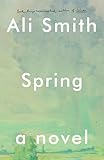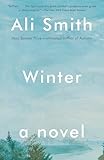Over the summer, I read Charlotte’s Web to my son, and it was like entering the house of an old friend, someone you haven’t seen in years, maybe decades, but as you sit in their kitchen and drink their coffee and look out their window to their backyard view, you remember all the time you spent at this particular table, gazing idly at the photos and sticky note reminders on the refrigerator, at the slowly ripening bananas in a cracked wooden bowl, at the pebble-filled jam jars lined up precariously on the windowsill, at the embossed linoleum floor tiles…and it’s all so comfortable and comforting that it’s like no time has passed at all.
We’ve all had friends like that. And we’ve all had books like Charlotte’s Web. When I read it aloud to my son, the sentences were so overwhelmingly familiar that I felt like I was singing along with a song I’d forgotten I knew. I read Charlotte’s Web many times as a kid, so I knew the story had made an impression, but I hadn’t realized what an influence the prose style had been, that it was a music that would stay with me for life.
Of course Charlotte’s Web is a very sad book. It often gets described as a story that teaches children about death—and I guess it does—but rereading it, I found that the real lesson is that true friendship is rare and rarely lasts a lifetime. When you’re young, and you find someone immediately delightful, you optimistically think life will be full of such encounters; you don’t understand that such people are the exception, not the rule. Your second mistake is in thinking that your mutual affinity means that the friendship will be long-lasting, when it fact, any number of life events might separate you from your friend—not only tragic events like illness and death, but marriage, children, schooling, career, and the ultimate friendship killer, a change of address. Friendships have their seasons, like anything else.
Most children’s books contain simpler lessons about friendship that focus on how to be a good friend or how to keep a friend. E.B. White takes for granted that children have natural affinities for certain people and animals, and that they form deep attachments. Rereading Charlotte’s Web, I appreciated how subtle he was in his storytelling, with his emphasis on the changing seasons on the farm, and on Fern’s transition from childhood to early adolescence. At the beginning of Charlotte’s Web, Fern can understand what animals are thinking and communicating to one another, but by the end, she has stopped visiting the farm and is more interested in the attentions of a boy at the fair.
 Did my son pick up on any of this? It’s hard to say. We read it twice, and he loves any story about animals, but it seems that Fantastic Mr. Fox, which is shorter, and funnier, is the one that tickles his soul. I read that book at least eight times this year. It’s basically a heist story that ends in a dinner party. I wouldn’t have guessed that it would be the novel I would spend the most time with this year, but parenthood is full of surprises.
Did my son pick up on any of this? It’s hard to say. We read it twice, and he loves any story about animals, but it seems that Fantastic Mr. Fox, which is shorter, and funnier, is the one that tickles his soul. I read that book at least eight times this year. It’s basically a heist story that ends in a dinner party. I wouldn’t have guessed that it would be the novel I would spend the most time with this year, but parenthood is full of surprises.


 As adult reader, the novels I loved most were Ali Smith’s Autumn and Winter, the first two in her seasonal quartet. These books are set in contemporary times and written quickly to reflect our changing politics—and even our changing seasons, as climate change skews temperatures and habitats. I haven’t read anything that reflects so well how the Internet has begun to permeate our everyday thoughts, or that gets the mood of our era so well, without getting bogged down by specific events or even names. They are witty and sad and strange and playful and kind. After I read them, I decided I would immediately read everything Ali Smith ever wrote. But life got in the way of that project and now I’m waiting for her next installment, Spring, which is due in April.
As adult reader, the novels I loved most were Ali Smith’s Autumn and Winter, the first two in her seasonal quartet. These books are set in contemporary times and written quickly to reflect our changing politics—and even our changing seasons, as climate change skews temperatures and habitats. I haven’t read anything that reflects so well how the Internet has begun to permeate our everyday thoughts, or that gets the mood of our era so well, without getting bogged down by specific events or even names. They are witty and sad and strange and playful and kind. After I read them, I decided I would immediately read everything Ali Smith ever wrote. But life got in the way of that project and now I’m waiting for her next installment, Spring, which is due in April.
More from A Year in Reading 2018
Don’t miss: A Year in Reading 2017, 2016, 2015, 2014, 2013, 2012, 2011, 2010, 2009, 2008, 2007, 2006, 2005
The post A Year in Reading: Hannah Gersen appeared first on The Millions.
from The Millions http://bit.ly/2zTQebE

No comments:
Post a Comment